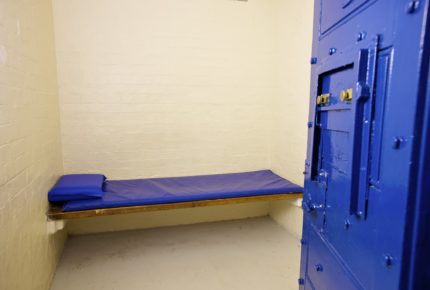

If you or someone you care about has been charged with an offence under the Sexual Offences Act 2003, you might be left wondering ‘What is a Sexual Harm Prevention Order? And what impact might it have?’ The Sexual Harm Prevention Order (SHPO) regime is a strict one, and the orders can even be imposed if the accused isn’t found guilty by reason of insanity. For this and other reasons, it is a good idea to understand SHPOs and what they could mean for your day to day life going forward.
What is a Sexual Harm Prevention Order?
A SHPO is an order made against any person who is found to have committed an offence under Schedule 3 or 5 of the Sexual Offences Act 2003. SHPOs are imposed by a magistrate or a judge at the Crown Court if the person is considered a risk to the general public, or to another specific person.
When does the court impose a SHPO?
A court can impose a SHPO either at the time of a conviction or at any given time in the future when an application is made by the police or the Crown Prosecutor. If the court is contemplating imposing a SHPO, it will consider the risk alleged to be posed by the offender as well as the offender’s past to see if they have had any previous convictions or if there were any previous court orders in place. The court may also want copies of any documents prepared by the offender’s probation officer, such as their record of reporting. The court may add prohibitions into the SHPO in an attempt to protect the general public, children, and vulnerable adults from the risk of sexual harm posed by the offender.
A SHPO may also be imposed at the time of sentencing if it is deemed necessary owing to the nature of the indictment. If the case is particularly complex, the judge may delay sentencing and request a pre-sentence report to ensure enough time to prepare. Such reports are usually prepared by a certified report writer who meets with and interviews the accused. The writer will go over the background of the individual, including their family history and dynamics, education, work life, details of the crime committed, and any other criminal history or relevant circumstances if applicable. Once this report has been prepared, the judge has a better idea of the suitability of imposing a SHPO on the offender. This process can take some time, and it is not unusual for cases or hearings to be delayed for this reason.
Because of the severity of having a SHPO imposed on an individual, the court needs to be completely satisfied (a) that the offender presents a risk of sexual harm to members of the public and (b) that by imposing the SHPO, the court will help to protect the public against such harm.
The particulars of the offence also play an important role in the determination of whether a SHPO will be imposed. Some of the factors include whether the SHPO can be effectively policed, whether it is proportionate, and whether it would minimise the chance of reoffending.
Behaviours prohibited by the SHPO may not be ones that raise alarm bells for the general public, but they nonetheless may be deemed necessary to prevent repeated offences in the future. This means that they are as much for the protection of the offender as they are for the public. With this type of order in place, the offender must always be careful of the places that they go to and the people that they associate with. Not complying with the conditions of the SHPO can lead to further prison time with release conditions being revoked.
What kinds of offences can lead to a Sexual Harm Prevention Order?
There are several offences – sexual and non-sexual – listed in Schedule 3 and 5 of the Sexual Offences Act 2003, each of which may lead to a SHPO being imposed. These include:
- rape
- sexual or indecent assault
- indecent exposure
- possession of child pornography
- Smuggling child pornography articles into the UK
- voyeurism
- exploitation of prostitution
- causing or encouraging prostitution
What are the consequences of a SHPO being imposed against a person?
If a SHPO is imposed against a person, it means that they must comply with the conditions imposed by the court. The conditions are listed on the order similar to how a probation order is laid out. These conditions could be imposed for life, or they could be imposed for a specified period of time. Since each case is not the same, the court will impose unique conditions for each one. Conditions and requirements that are not specific to the case or that are too general may not be enforceable, and thus your defence barrister may argue they should be appealed.
Does the court impose travel restrictions?
Any individual who is subject to a SHPO may have conditions placed upon them that restrict their travel abroad. If such a condition is imposed, the individual must surrender their passport. If the order is only for a certain period of time, then a passport can be obtained after that time has expired. If the order is for an indefinite amount of time, then the offender cannot travel abroad until such restriction is lifted (which, for some offenders, is unlikely). Additionally, some countries – such as the United States of America – restrict entry to those who have been convicted of a violent or sexual crime, and thus even if travel is permitted by the order, the individual’s travel may nonetheless remain restricted.
What are the common conditions of a SHPO?
There are a wide range of conditions that may be imposed on a SHPO. Those conditions can both restrict things that a person can do, and they can require the person to do certain things. Those conditions may include:
- not to partake in certain leisure activities, such as visiting a public swimming pool
- not to use mobile phones or cameras
- not to have contact with the victim or anyone under the age of 18
- not to use the internet and not to delete internet history
- not to enter any areas where children may be present including schools or parks
- not to be in a certain area or place (usually a ban from the address where the incident occurred)
- not to work or volunteer in any place where persons under 18 will be present
- being required to take part in sex offender rehabilitation programmes
- being required to attend polygraph sessions
- being required to report to a supervising officer any new relationships or a relationship where that person resides in a home with someone who is under the age of 18
- being required to stay in residence between certain hours (curfew)
- being required to attend appointments with a mental health worker or psychiatrist (usually this condition is only used with the consent of the offender)
The consequences of a Sexual Harm Prevention Order
An individual with a SHPO in place might also be subject to certain notification requirements, which means they have to tell certain people that they are subject to such an order. You should know that:
- A SHPO will show up on a Police National Computer check indefinitely
- A SHPO is treated as a conviction that will be on your record for life
- A SHPO can last five years or, if the court says so, “until further court order” (which means that the SHPO will remain in place until it is discharged or changed)
- A SHPO must be declared to a potential employer, and no person with a SHPO should attempt to gain employment that is with or near children
- If a SHPO is breached without a valid reason, such breach is a criminal offence. If convicted, the offender can face a wide range of sentences including prison for as long as five years.
Can the conditions of a SHPO be changed or appealed?
Usually, a SHPO cannot be discharged for at least five years. The main exception is if the SHPO is successfully appealed. If the SHPO is considered to be too wide in scope, if the terms are too onerous when compared to the alleged crime, or if the person who is supposed to be protected by the SHPO does not accept it, these can all be grounds for an appeal. Given the difficulties of living with a SHPO, many solicitors will recommend that an order is appealed if there are reasonable grounds to do so.
Where next for help with a SHPO?
Stuart Miller Solicitors are criminal law experts with a wealth of experience in helping people to understand, live with, or appeal SHPOs. Our team understands the immense difficulties and great feelings of shame that often come along with such an order, and we have helped countless clients to overcome the challenges they face in their day to day lives. If you need help with this, too, please get in touch for a no-obligation conversation about your options.
OUR COMMITMENTS TO YOU:
-
Responsive
A legal expert will consult you within 24 hours of making an enquiry.
-
Empathetic
We will always treat you with trust, understanding and respect.
-
Specialised
Your case will be handled by an expert who specialises in your type of offence.
-
Proactive
We will take early action to end proceedings as soon as it is practically and legally possible to do so.
-
Engaged
You will be kept updated on your case at all times. We will provide a named contact available to answer your questions.
-
Caring
We understand this is a difficult and stressful time for you and your family. Our team will support you every step of the way.
-
Tenacious
We will never give up on your case. We fight tirelessly to get you the best possible outcome.

